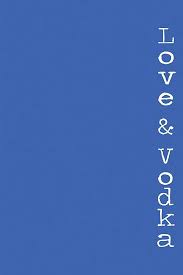Search Results: Returned 10 Results, Displaying Titles 1 - 10
-
-
2020., Princeton University Press Call No: QWF 820.9 B663c Availability:1 of 1 At Your Library Summary Note: "In early modern English interior design, closets provided royalty with secluded places for reading, writing, and storing valuables, as well as for nurturing the shifting alliances on which the politics of the day depended. Admission to the closet was contingent solely on the owner's approval, and the criteria for admission were necessarily opaque. Later, in the houses of nobility and, increasingly, those of the middle class, private rooms served as prayer closets, curiosity cabinets, dressing rooms, libraries, galleries, and impromptu bedrooms. Merging with the privy and the bath, they were remade as earth closets or water closets and bathing closets. In these new iterations, closets remained important spaces where physical closeness or the exchange of knowledge, or both, could take place. The Closet proposes that the closet's material proliferation had a distinctive relationship to literature. Drawing on work by Samuel Pepys, Jonathan Swift, and Laurence Sterne, among others, the author argues that eighteenth-century writers were curious about closet relations as such-including favoritism, patronage, and voyeurism-and also turned to the closet as a figurative bond between author and audience. Dozens of texts published in the seventeenth and eighteenth centuries were described by their writers or publishers as closets or cabinets, such as the novella "Miss C--'s Cabinet of Curiosity," containing knowledge that originated in courtly closets, prayer closets, and similar intimate spaces. The closet's longstanding associations with intimacy across social divides made it a touchstone for exploring the attachments made possible by the decline of the court, on one hand, and the proliferation of print, the first mass medium, on the other"--
-
-
c2013., Basic Books Call No: 176.4 F862e Availability:1 of 1 At Your Library Summary Note: Hookup culture dominates the lives of college students today. Most students spend hours agonizing over their hopes for Friday night and, later, dissecting the evenings' successes or failures, often wishing that the social contract of the hookup would allow them to ask for more out of sexual intimacy. The pressure to participate comes from all directions-from peers, the media, and even parents. But how do these expectations affect students themselves? And why aren't parents and universities helping students make better-informed decisions about sex and relationships? In 'The End of Sex', Donna Freitas draws on her own extensive research to reveal what young men and women really want when it comes to sex and romance. Surveying thousands of college students and conducting extensive one-on-one interviews at religious, secular public, and secular private schools, Freitas discovered that many students-men and women alike-are deeply unhappy with hookup culture. Meaningless hookups have led them to associate sexuality with ambivalence, boredom, isolation, and loneliness, yet they tend to accept hooking up as an unavoidable part of college life. Freitas argues that, until students realize that there are many avenues that lead to sex and long-term relationships, the vast majority will continue to miss out on the romance, intimacy, and satisfying sex they deserve. An honest, sympathetic portrait of the challenges of young adulthood, 'The End of Sex' will strike a chord with undergraduates, parents, and faculty members who feel that students deserve more than an endless cycle of boozy one night stands. Freitas offers a refreshing take on this charged topic-and a solution that depends not on premarital abstinence or unfettered sexuality, but rather a healthy path between the two.
-
-
c1999., Cliff Street Books Call No: 128.21 O263e Edition: 1st ed. Availability:1 of 1 At Your Library
-
-
2008., Little, Brown & Co. Call No: 158.24 J69h Edition: 1st ed. Availability:1 of 1 At Your LibraryClick here to watch
-
-
-- Scientific basis for the healing power of intimacy.By Ornish, Dean1998., HarperCollins Call No: 616.123 O74l Edition: 1st ed. Availability:1 of 1 At Your Library
-
-
2016. Call No: NEW 811.6 S916l Availability:1 of 1 At Your Library Summary Note: Love & Vodka is Christina Strigas' third poetry book. This book is written for all the hearts that shatter, that are transparent, that crack, rebuild and see truth. This is for the souls that connect through words. The poems in this book will make you breathless from their honesty. This poetry collection is full of poems that will make you contemplate the magic of connections disconnections, rejection, love, drinking, pain, marriage, loneliness, honor and the perils of living so many lifetimes in one. Delve into poetry head first and read passages over again to connect. This book has a modern feel with an ancient way of writing. Inspired by Anne Sexton, Sylvia Plath and modern poets such as Mary Oliver and Billy Collins to name a few, Christina Strigas uses stream of consciousness to devour themes and words and spurt them forth into a poem. A contemporary poetry book that will not disappoint you and that will restore your faith into the power of poetry again.
-
-
By Ohlin, Alix2012., General, Vintage Books Call No: Fic Ohl Availability:1 of 1 At Your Library Summary Note: In this brilliant new collection, one of Canada's brightest young talents skillfully displays the full range of human emotions through the subtly powerful dramas of everyday life.
-
-
2020., Adult, McClelland & Stewart Call No: Bio C954t Availability:0 of 1 At Your Library Summary Note: 'Through the Garden' is a deeply affecting portrait of a long marriage and a clear-eyed account of the impact of grief, writing as consolation, and the enduring significance of poetry, from one of Canada's most celebrated voices. Lorna Crozier lives on Vancouver Island, BC.














